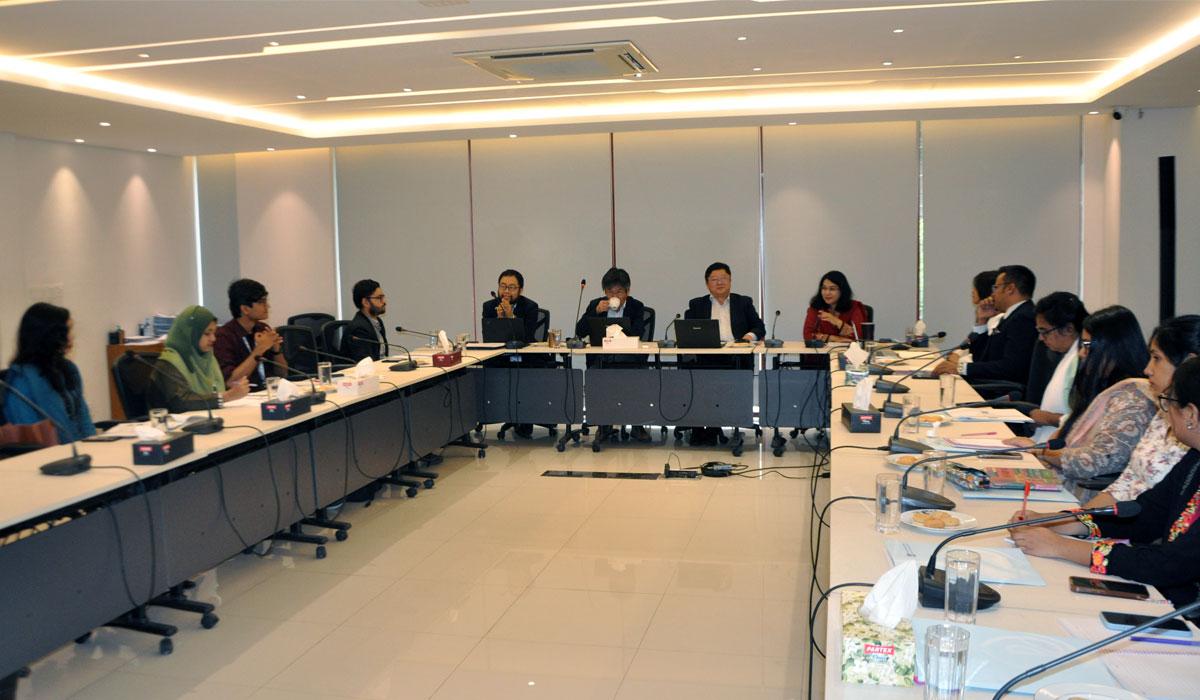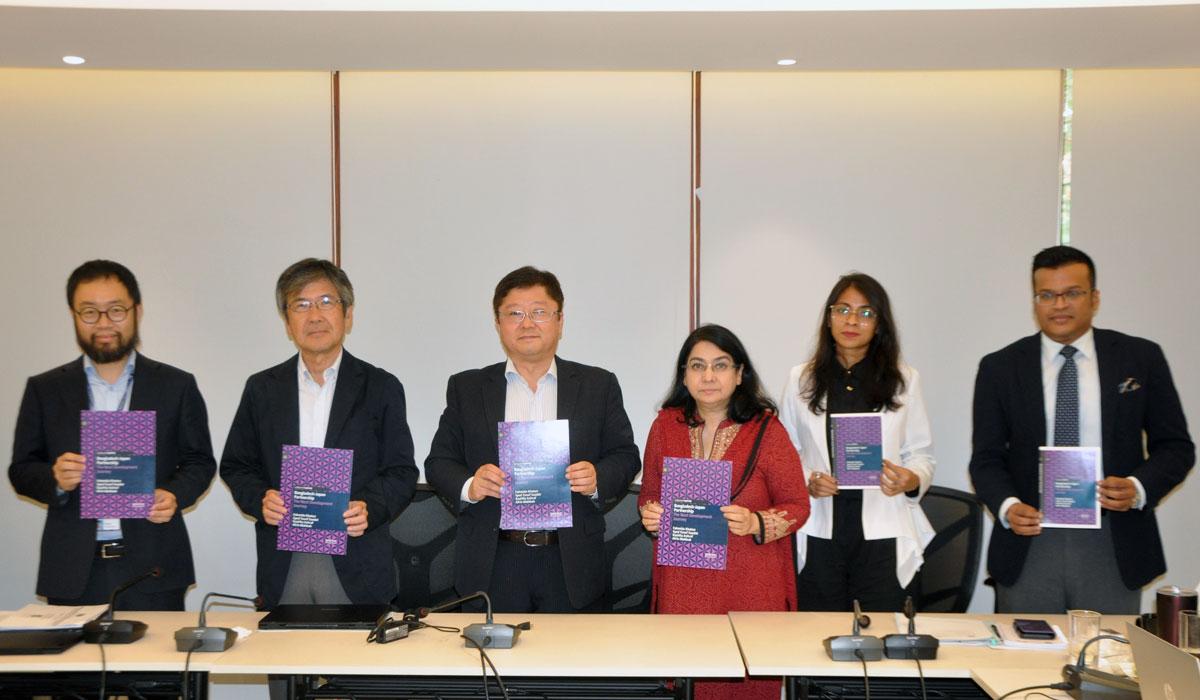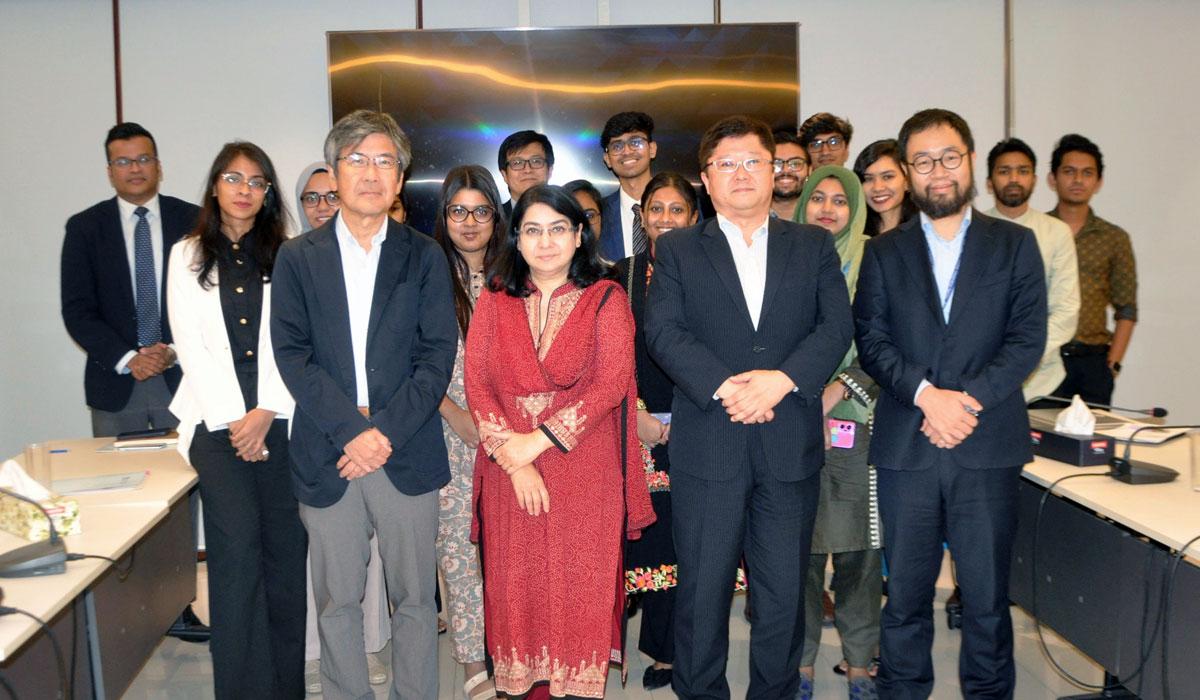
The Centre for Policy Dialogue (CPD) hosted an in-house discussion on Sunday, 27 October 2024, titled “Livelihood of the People of Dhaka: Employment, Education, Transport.” Held at CPD’s Dialogue Room in Dhaka, the event brought together experts and stakeholders from various sectors, aiming to shed light on pressing urban issues affecting the people of Dhaka. The session covered various critical topics, including youth employment, finance for education, and the city’s transport infrastructure.
Dr Fahmida Khatun, Executive Director of CPD, welcomed the participants and set the tone of the discussion by highlighting the socio-economic challenges faced by Bangladesh. The session began with the launch of the book “Bangladesh-Japan Partnership: The Next Development Journey” authored by CPD researchers Fahmida Khatun, Syed Yusuf Saadat, Kashfia Ashraf and Afrin Mahbub. This book underscores the evolving cooperation between Bangladesh and Japan in advancing the country’s development goals.
Ms Afrin Mahbub, Programme Associate (Research) at CPD, made a presentation on Bangladesh’s Education Budget for the fiscal year 2024-25. Her insights highlighted areas of improvement and investment necessary to strengthen the education sector, drawing particular attention to resource allocation and policy priorities. The discussion resonated well with participants, underscoring the need for an education system aligned with the country’s developmental aspirations.

Mr Syed Yusuf Saadat, CPD Research Fellow, made a presentation on the employment landscape for Bangladesh’s youth and Generation Z, addressing skill gaps and employment barriers in an evolving job market. His analysis underscored the urgency of bridging the divide between educational outcomes and labour market needs to better integrate young people into productive employment.
Dr Eiji Yamada, Senior Representative of the JICA Bangladesh Office and Senior Research Fellow at the JICA Ogata Research Institute for Peace and Development, presented a data-driven analysis on Dhaka’s MRT Line 6. By leveraging insights from Google Maps data and JICA’s baseline survey, he demonstrated how the new MRT line is expected to enhance travel speed and reduce congestion, contributing positively to the livelihoods of city residents. Dr. Yamada’s presentation was particularly impactful, as participants discussed the transformative potential of MRT Line 6 on Dhaka’s urban landscape.
Professor Satoshi Shimizutani of Nagoya University shared findings on the socio-economic impact of urban piped water development in Mandalay, Myanmar. His presentation highlighted how infrastructure improvements in one city can offer valuable lessons for others.
Professor Yasuyuki Sawada from the University of Tokyo made a presentation on the impact of self-learning at the right level, particularly the effectiveness of the Kumon method in Bangladesh. He emphasized the critical role of self-paced learning methods in improving educational outcomes, especially in the wake of prolonged COVID-19 school closures.

The event concluded with an engaging open discussion among participants from institutions such as the Centre for Policy Dialogue, BRAC Institute of Governance and Development, Policy Research Institute of Bangladesh, Research and Policy Integration for Development, and the Embassy of Japan in Bangladesh. Dr. Khatun closed the session with remarks underscoring the need for continued dialogue and collaboration to address challenges related to education, employment, and urban transport.


